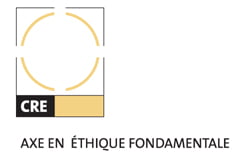
Taking responsibility for one’s beloved
2910 Boulevard Edouard-Montpetit
Université de Montréal, Montréal, QC H3T
Canada
MAMIC: Christopher Cowley, University College Dublin.
Veuillez noter que la présentation et les discussions qui suivront se feront en anglais.
Most analytic philosophical accounts of role-responsibility are ontological in aim : they seek to determine when and why the agent is or is not reponsible, and in what way, for some other person. One paradigm is the doctor’s responsibility for a patient who has been properly allocated to them. The act of taking responsibility is then derivative : I ought to take responsibility for someone because I am or have been made responsible. (If I decide to ignore or neglect my responsibility, it nevertheless remains my responsibility.) This ’ought’ is also general : it is generated by the nature of the role and the situation, such that it would then apply to any person who found themselves in that situation.
I want to ask how far this account can be applied to the ’role’ of lover in a romantic relationship. Things are already problematic because of the lack of anything approaching the general responsibilities laid out in an employment contract, and of anything approaching a hiring institution or employment tribunal. Clearly the lover has some conventionally-defined responsibility toward the beloved in order for us to recognise the relationship as one of love in the first place. But within these broad limits, there is a real sense that the lover is free to take responsibility for some aspects of the beloved and not for others ; and therefore the taking precedes the being. The precise responsibilities taken will then partly constitute the loving relationship. But if the lover is free to take or not take responsibility, what sort of freedom are we talking about here ? And insofar as the lover’s freedom is the source of the responsibility, how much does tham place him (or the relationship) beyond criticism by a well-informed third party ?



